
Châtenay-Malabry (FR - 92290), August 15, 2022
EFITA newsletter / 1052 - European Federation for Information Technology in Agriculture, Food and the Environment
The informatique-agricole.org site offers you the possibility of subscribing the RSS feeds of its two newsletters
See RSS feeds to implement to ensure that you continue to receive this newsletter
To unsubscribe this newsletter, please contact me directely: guy.waksman(a)laposte.net if this link Unsubscribe does not work.

To correspond with me (GW), please use this address: guy.waksman(a)laposte.net
To subscribe the efita newsletter (please ask your friends and colleagues to test this link)
Efita Newsletters subscription
Before computers
Weekly newsletters about ICT in Agriculture in English and French
Both newsletters have around 10000 subscribers.
>>> Last weekly EFITA Newsletters in English (created in 1999) Efita Newsletters
>>> Last weekly AFIA Newsletters in French (created more than 20 years ago in 1997) Afia Newsletters
>>> Statistics for the last efita newsletter
>>> Last issue of the afia newsletter
>>> Last available satistics for the afia newsletter
Can we outsmart the world’s deadliest animal? By Bill Gates | August 15, 2022
You might have tuned into Shark Week last month and gotten a little frightened.
But want a real scare?
Check out Mosquito Week on Gates Notes, where I’m sharing stories about what’s truly the world’s deadliest animal.
Sharks are wimps compared to these beasts. Mosquitoes and the diseases they carry kill more people in one day than sharks kill in 100 years.
But humans are striking back against this dangerous foe. This Mosquito Week I’m featuring stories about amazing new innovations and incredible researchers that are helping to protect us from these dangerous animals.
I hope you find these stories as inspiring as I do.
See gatesnotes.com
Two Cows and a Goat, 1649, Paulus Potter (1625-1654), Musée du Louvre
| 01 - 11/08/22 |  |
FutureFarming.com
> Video: Autonomous plant-specific spraying with Robotti
Wageningen researchers are developing a spot sprayer to combat, for example, volunteer potatoes in onions and beets. This in collaboration with a Robotti 150D field robot. Tests show that the spraying system needs to be even more robust.
> LEMKEN L-Team: The specialists for the future of soil
The specialists of the LEMKEN L-Team work on your success. In flexible teams of machine experts, farmers and specialists, we face your challenges close to practice, solution-oriented and that worldwide. We answer your call for action and assign exactly the right specialists directly to you. Together we offer solutions to your individual problem.
> autonomous vehicles: Polymath Robotics develops universal autonomy software
Polymath Robotics is a new company, launched in order to develop general autonomy software for industrial and agricultural vehicles. Co-founder Stefan Seltz-Axmacher: "With Polymath, autonomy no longer needs to take 2 years of engineering just for a demo."
> Autonomous tractors: Foxconn to build autonomous electric tractors for Monarch in U.S.
Monarch Tractor signed a contract manufacturing agreement with Hon Hai Technology Group (Foxconn) to build next-generation agricultural equipment and battery packs at the Foxconn Ohio facility.
> Drone spraying: Syngenta India to start with drone spraying
Syngenta India will start with 50 drones and use them to spray 30,000 acres of farmland across the country. According to Financial Express, Syngenta India is ready with two products (a fungicide and insecticide) for six crops including cotton, rice and soybean for drone spraying.
> Field robots video: First AgXeed robot tractor delivered in the Netherlands
The first robot tractor developed in the Netherlands by manufacturer AgXeed was recently delivered to P. van Osch Groenteproducties. The vegetable grower wants to use the AgXeed robot tractor for intensive operations such as disc harrowing, deep cultivation and tilling at low speed.
> Wageningen University on a quest to develop the best robotic grippers
Wageningen University & Research is working on various projects for robotic operations in orchards and greenhouses. Some of these partake in the quest for the best gripper for robotic fruit and vegetable harvesting. During the recent Agro Food Robotics parcourse, the Agro Food Robotics unit of Wageningen University & Research showcased 14 different precision agriculture and robotics projects they're working on.
> Autonomous tractors: John Deere electric autonomous tractor to reach Australian farms by 2026
John Deere will soon start a trial with a prototype of its autonomous electric tractor in Australia. The company plans to launch the electric autonomous tractor in Australia in 2026.
> Harvesting: HarvestEye measures size and count of potatoes during harvest
HarvestEye is working with growers in Mallorca to conduct field trials of current and future iterations of its technology. HarvestEye is technology that fits to existing harvesting or grading equipment, providing timely insights on root crops as they are lifted.
> Tools & data: xFarm Technologies secures €17 million to make agriculture more sustainable
xFarm Technologies intends to use the capital raised to develop and improve its farm management app with new features aimed at enhancing sustainability performance.
> Tools & data: CropX farm management system connects with John Deere Operations Center
The integration allows CropX farm management system users with an Operations Center account to share data bi-directionally between the systems. This enhanced functionality enables users to view data and analytics from the CropX platform, including near real-time soil sensor monitoring, from within Operations Center.
> Data ownership: How safe is farmers’ data if FBN goes public?
Many of the FBN-members share data with each other. How might this data be handled if the company goes public?
See FutureFarming.com
Le cheval pie, 1653, Paulus Potter (1625-1654)
| 02 - 11/08/22 | 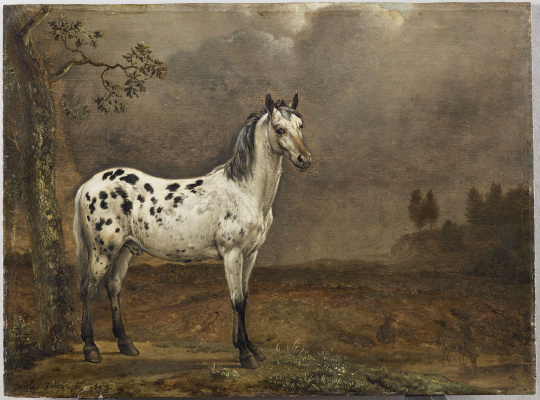 |
How did we see the future yesterday??
See the incredible collection developed by Alain Fraval
A farmer’s outlook: ‘We are the caretakers of our generation’, by Brianna Scott, November 05, 2021
…/…
“We are the caretakers of our generation and want someone else to have the opportunities we’ve had. We are really careful about taking care of land, improving it, and soil health,” Schafer said. “Farmers are the number one environmentalist because they are in touch with their own land; in touch and [know] what it needs. The last thing we want to do is hurt it because it provides for us.”
And if you remember nothing else from this article, remember that.
Farm on.
See agdaily.com
La ferme, 1649, de Paulus Potter (1625-1654)
| 03 - 11/08/22 | 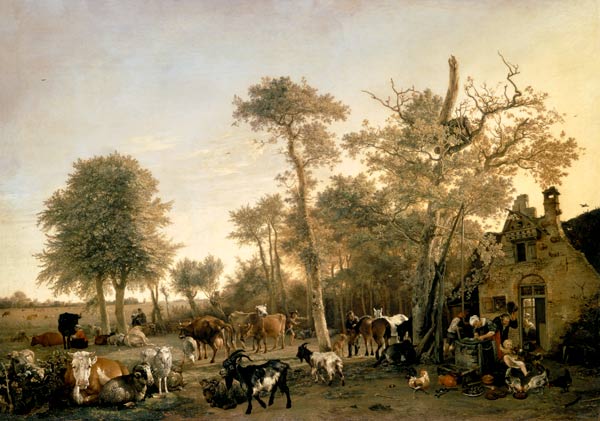 |
The world is awful. The world is much better. The world can be much better.
The world is awful. The world is much better. The world can be much better. All three statements are true at the same time.
Discussions about the state of the world too often focus on the first statement: the news highlights what's going wrong, rarely mentioning positive developments.
A pushback on this narrative takes it to the other, equally damaging extreme: only communicating the progress the world has achieved. This becomes unhelpful, or even repugnant, when it glosses over the very real problems of today.
It’s hard to resist falling for only one of these perspectives. But to see that a better world is possible, we need to see that both are true at the same time. The world is both awful and much better.
In this article, we illustrate this perspective using one of humanity’s biggest tragedies: the death of its children. But the same is true for many of the world’s other challenges. Humanity faces many problems where things have improved over time, which are still terrible, and for which we know that things can get better.
| See
ourworldindata.org 11/08/22 |
 |
Advantage Agtech: Why the Farm-to-Table Agriculture Model Is Winning
The entire ecosystem is involved right from the farmer who plants the crop to the consumer who finally consumes it.
See Globalagtechinitiative.com
Swiss Agritech Startup xFarm Technologies Raises €17M to Assist Farmers via AI
xFarm will use funds to enhance its platform with new features to help farmers with sustainability measures on the farm.
See Globalagtechinitiative.com
La laitière, 1646, par Paulus Potter (1625-1654)
| 04 - 11/08/22 | 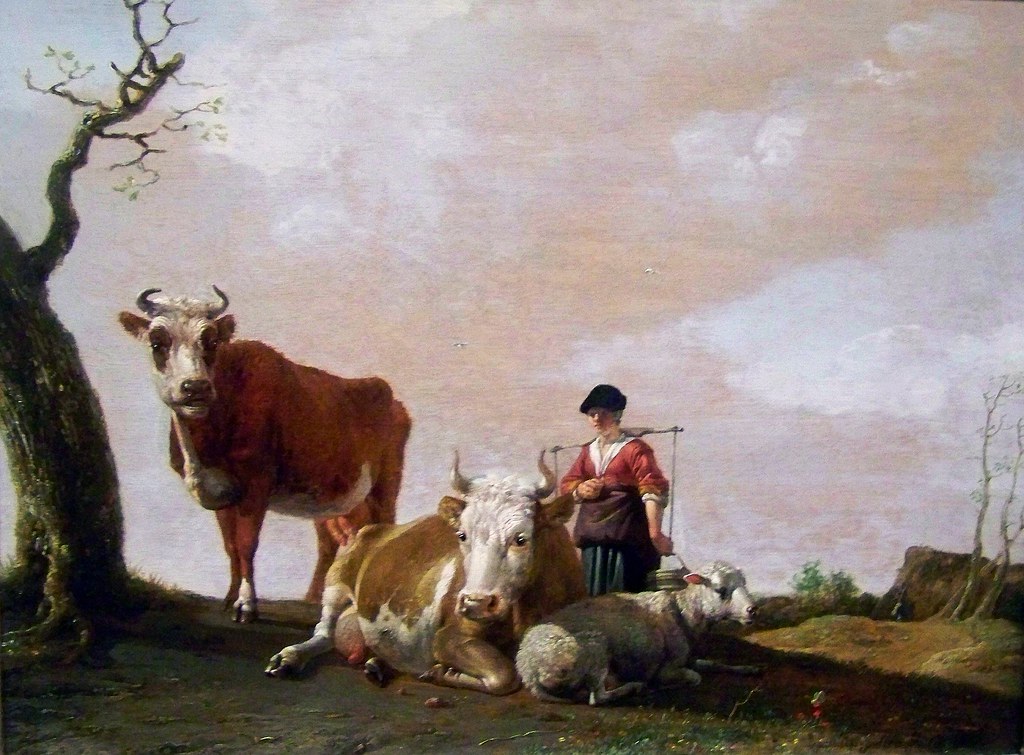 |
UK: Better Governance Key to Make the Most of Farm Data
For so many farmers, potentially helpful digital tools are ignored because of a lack of trust in how their farm data is managed.
See Globalagtechinitiative.com
People around the world have gained democratic rights, but some have many more rights than others
200 years ago, everyone lacked democratic rights. Now, billions of people have them.
But there are still large differences in the degree to which citizens enjoy political rights: most clearly between democracies and non-democracies, but also within these broad political regimes.
To understand the extent of people’s political rights, we shouldn’t look only at whether a country is classified as a democracy or not. We should also look at smaller differences in how democratic countries are.
In this article we do just that: We use data on the extent of democracy to compare how democratic countries have been over the last two centuries.
| See
ourworldindata.org 11/08/22 |
 |
Global Agri-Tech Provider Agro.Club Enters Brazilian Market
The company's Full Stack Marketplace model has already demonstrated rapid scale and has proven to increase transparency.
See Globalagtechinitiative.com
How Agtech Is Reshaping the Farming Landscape in India
Modern technology is further strengthening Indian agriculture’s role in the global context.
See Globalagtechinitiative.com
Cattle in a Meadow, 1652, by Paulus Potter (1625-1654)
| 05 - 11/08/22 |  |
The Week in Agrifoodtech: Afresh grabs $115m, rural fintech Jai Kisan lands $50m, AFN, by Jennifer Marston
While $100 million-plus foodtech funding rounds are less common these days, Afresh managed to close one this week for its operating system that reduces supermarket food waste. Fintech startup Jai Kisan raised funds to help rural businesses in India, and across the industry, cuts and layoffs continue, especially in restaurant tech.
Voir agfundernews.com
xFarm Technologies banks €17m to expand ‘freemium’ digital ag platform, AFN, by Jennifer Marston
…/…
Founded in 2017, xFarm Technologies offers farmers and other ag businesses a mobile platform that, via in-field sensors, collects and analyzes data from all over the farm, providing information on pests, weed growth, irrigation needs, and financial matters, to name just a few.
- xFarm merged with Italian digital ag company Farm Technologies in 2021 to create xFarm Technologies. The merger brought additional capabilities and management areas to the xFarm platform.
- Currently, the software platform supports 110,000 farms belonging to over 30 agrifood chains and covering 1.5 million hectares in roughly 100 countries.
- xFarm is available as a “freemium” subscription to growers and other ag businesses just wanting to try it out before graduating to a paid premium service.
…/…
See agfundernews.com
Very expensive gas in Europe
|
01 - 11/08/22 |
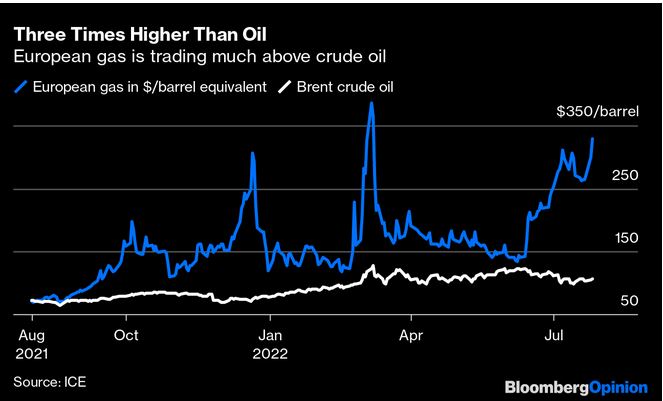 |
How the Dutch nitrogen revolt highlights ESG investment risks, AFN, by guest contributor: Chris Coggin (ESG: for Environmental, Social, and Governance)
he Netherlands, like many other countries, is at a crossroads. On the one hand, the government is under pressure to significantly reduce nitrogen pollution if it wishes to avoid being penalised by the European Commission. On the other hand, it must try to win over the farmers unions, as well as other agricultural workers, who strongly oppose the proposals that seek to limit Greenhouse Gas (GHG) emissions and pollutants by reducing livestock numbers. Farmers fear this could potentially lead to expropriation. As it stands, the government remains resolute in its plans to lower nitrogen levels. The situation in the Netherlands is back in focus recently, thanks in part to Donald Trump, Marine le Pen and Geert Wilders expressing their views. But what has really been happening on the ground, and what does it mean for investors?
On 10 June 2022, the Dutch Minister for Nature and Nitrogen, Christianne van der Wal, reaffirmed the “radical but necessary transition of the rural area” to reduce nitrogen oxide and ammonia by 2030. The planned target reductions of between 12% and 95%, depending on the area, focus largely on the agricultural sector, with measures including a reduction in livestock numbers by around 30%. The national government has set aside €24.3 billion to solve this problem, and it has tasked the country’s 12 provinces to formulate a plan of action by 2023.
To protest these drastic measures, farmers have taken to the streets, blocking warehouses, roads, land borders and government buildings. In some areas of the country, farmers dumped and set fire to manure and waste containing asbestos on highways. In that same respect, fishermen are blocking ports.
.../...
See agfundernews.com
Feeling unsafe in NY?
| 02 - 11/08/22 | 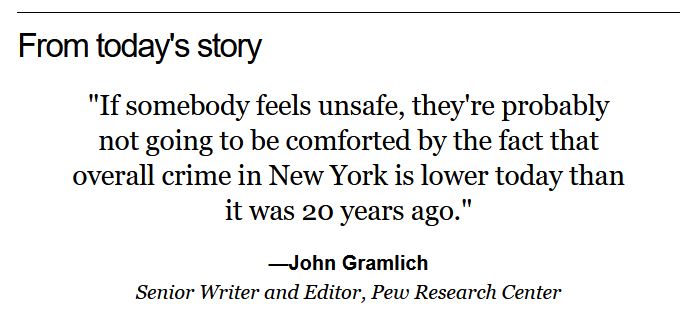 |
Amazon launches agronomy service for Indian farmers, by Jack Ellis, September 3, 2021
- Amazon Retail, the Indian e-grocery business of US tech giant Amazon, has started offering digital agronomy services to farmers in the country, the Business Standard reports.
- The platform provides crop plans aimed at improving yields and quality, pest and disease alerts, and farm management software that can be accessed via mobile app – as well as a team of agronomists who can give more comprehensive advice to farmers.
- Amazon also said it is building “robust temperature-controlled supply chain infrastructure” to preserve the quality of farm produce and reduce food waste
>>>> Why it matters:
Over half of India’s population is employed in agriculture, and the sector makes up around a fifth of the country’s GDP. But the majority of farms are smallholdings relying on manual labor and outdated practices; while the infrastructure around the farm — from pre-harvest inputs and supplies to post-harvest transportation and storage — is riddled with inefficiencies that lead to wasted food and lost income for farmers.
In a report released earlier this year, Bain & Company estimated that India’s market for tech-enabled ag logistics, offtake, and input delivery could add $35 billion in value by 2025.
Amazon isn’t the only internet giant that’s trying to make the most of this opportunity. Last year, Facebook invested $5.7 billion in mobile network carrier Reliance Jio, with digitalization of India’s ag sector highlighted by the company as part of its motivation to do the deal.
See agfundernews.com
French Electricity Production Difficulties
| 03 - 11/08/22 | 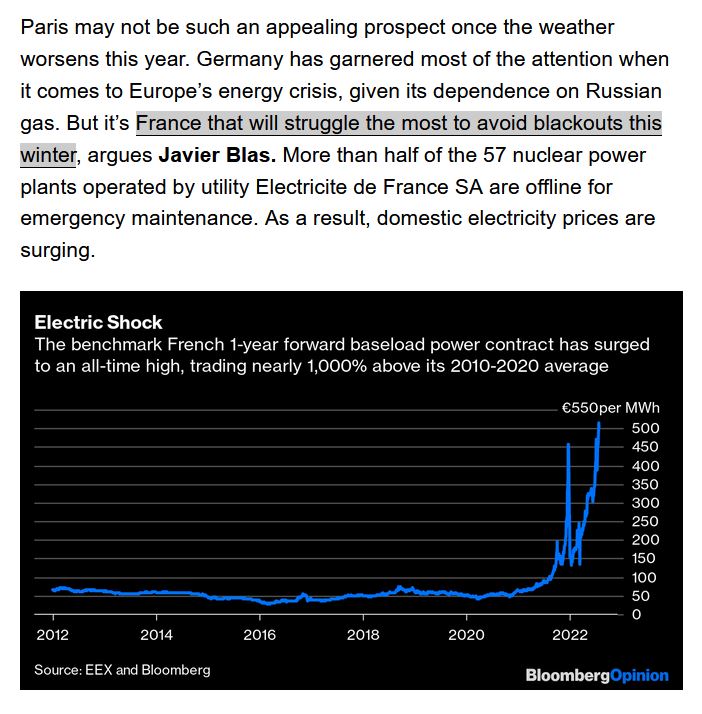 |
California agrifoodtech investment still outpaces the rest of US by billions, AFN, by Jennifer Marston
The US still attracts the bulk of agrifoodtech capital, according to AgFunder’s 2022 AgriFoodTech Investment Report. Startups in the US raised $21 billion in 2021 across 1,062 deals, accounting for 41% of investment capital for agrifoodtech.
At the state level, California agrifoodtech investment continues to dominate, thanks to both its agricultural and Silicon Valley venture capital roots. Startups in the Golden State raised $9.7 billion in deals in 2021, up from $5.6 billion in 2020. Notable names in agrifoodtech, from alt-protein companies like Impossible Foods and Perfect Day to ag biotech startup Pivot Bio, call California home and were among the top agrifoodtech investment deals in 2021.
|
See
agfundernews.com |
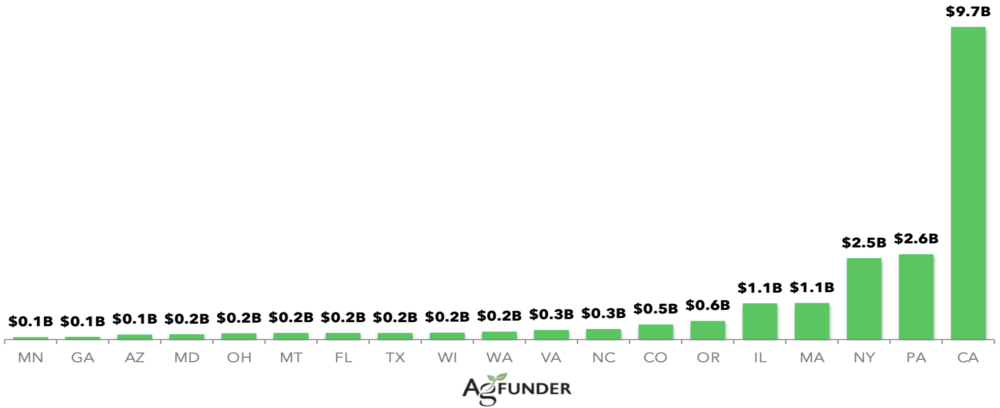 |
US not yet in recession
| 04 - 11/08/22 | 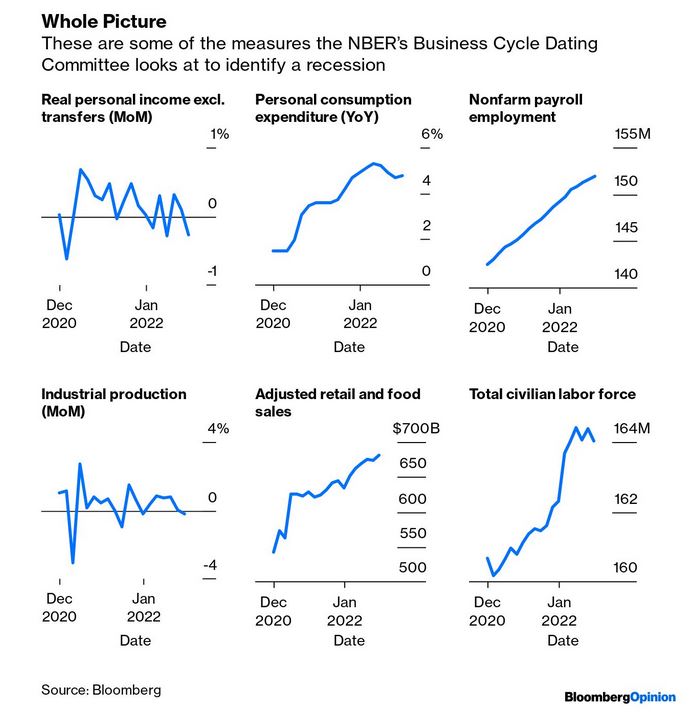 |
A first thought for today
There would be no society if living together depended upon understanding each other.
Eric HOFFER, philosopher and author (1902-1983)
A second thought for today
I'm fed up to the ears with old men dreaming up wars for young men to die in.
George McGovern, senator and author (1922-2012)
A third thought for today
What a child doesn't receive he can seldom later give.
P.D. JAMES (Phyllis Dorothy James), novelist (1920-2014)
A fourth thought for today
We are social creatures to the inmost centre of our being. The notion that one can begin anything at all from scratch, free from the past, or unindebted to others, could not conceivably be more wrong.
Karl POPPER, philosopher and professor (1902-1994)
The Plough Horses, 1652, by Paulus Potter (1625-1654)
| 06 - 11/08/22 | 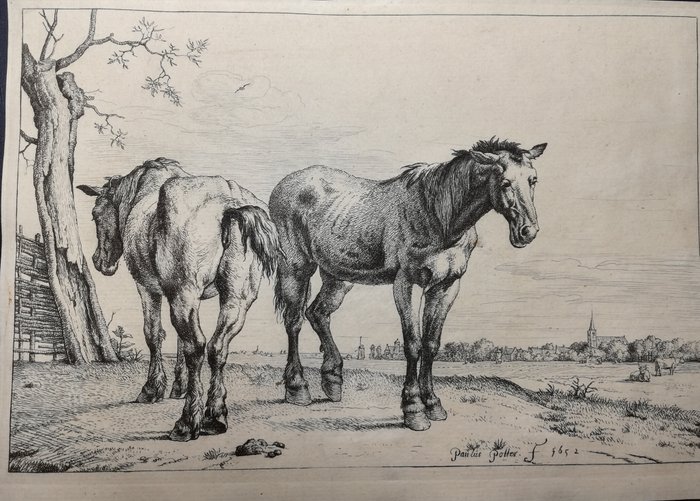 |
UK Politics... Keir Starmer is right – for Labour to win power, it can’t wade in on every strike going, by John McTernan, John McTernan, director of political operations under Tony Blair
.../...
Of course, there is a huge prize for all workers, whether in a union or not, if there is a Labour government. The vast extension of workers’ rights under Tony Blair shows that: from guaranteed paid bank holidays and the minimum wage to maternity, paternity and adoption rights, New Labour re-regulated the labour market. But that requires Labour recovering from the worst election defeat since the 1930s in a single electoral cycle.
Starmer has done in two years what took Neil Kinnock eight: he has made the Labour party electorally competitive again. Now Starmer needs to stick to his guns on strikes. To be an alternative government in waiting you must show you will govern for the nation, not the faction.
See theguardian.com
Politics... China’s Overeducated and Underemployed Young People, By Catherine Ngai, July,25 2022
The most educated generation in China’s history was supposed to blaze a trail towards a more innovative and technologically advanced economy. Instead, about 15 million young people are estimated to be jobless, and many are lowering their ambitions.
A perfect storm of factors has propelled unemployment among 16- to 24-year-old urbanites to a record 19.3%, more than twice the comparable rate in the US. The government’s hardline Covid Zero strategy has led to layoffs, while its regulatory crackdown on real estate and education companies has hit the private sector. At the same time, a record number of college and vocational school graduates—some 12 million—are entering the job market this summer. This highly educated cohort has intensified a mismatch between available roles and jobseekers’ expectations.
…/…
See bloomberg.com
The Piebald Horse, by Paulus Potter - Dutch, about 1650 - 1654
| 07 - 11/08/22 |  |
Farmers need practical innovation, not moonshots, to stave off global food crisis
Modern farming is as much about data as digging. Here are 3 emerging agricultural skills
This WW2 bunker is growing sustainable salad leaves deep underground. Here’s how.
See weforum.org
ESG investing isn’t designed to save the planet, Harvard Business Review, by Kenneth P. Pucker and Andrew King (ESG: for Environmental, Social, and Governance)
Most people assume that ESG Investing is designed to reward companies that are helping the planet. In fact, ESG ratings which underlie ESG fund selection are based on “single materiality” — the impact of the changing world on a company P&L, not the reverse.
Asset management firms have been happy to let the confusion go uncorrected — ESG funds are highly popular and come with higher management fees. The danger with ESG investing is that it might convince policy makers that the market can solve major societal challenges such as climate change — when in fact only government intervention can help the planet avoid a climate catastrophe.
See hbr.org
The AgTech Paradox: what biology and historians can teach us about the agriculture industry, Upstream Ag Insights, by Shane Thomas
The agtech industry has a lot of criticisms thrown at it. In many cases, these can be legitimate. Businesses trying to solve a problem that doesn’t exist, a poor business model, a hyperbolic, unrealistic vision or sometimes just a plain and simple bad idea.
However, in order to have a thriving industry, in agriculture or otherwise, new ideas are necessary. Not nice to have, not good some of the time, they are necessary to drive industry forward. Without new ideas and technology we lack the ability to progress, achieve economic growth, solve big problems and lack the ability to leave future generations better off than past generations, especially when it comes to agriculture growing food for the global population.
The thought that needing to have ideas and new technology stems from the concept of business as biology.
…/…
It’s fun to have conversations about whether venture capital is the right investment mechanism for agriculture and while I don’t know what the right answer is, I know having access to capital for people with ideas and a vision for the future of agriculture is a good thing for the industry.
It’s also a great thing that we get tough times and companies fail. Not much is absolutely good or absolutely bad like the conversations we typically have seem to infer.
This can be illustrated nicely by one of my favourite quotes from The Lessons of History:
So the conservative who resists change is as valuable as the radical who proposes it -- perhaps as much more as the roots are more vital than grafts. It is good that new ideas should be heard, for the sake of the few that can be used; but it is also good that new ideas should be compelled to go through the mill of objection, opposition, and contumely; this is the trial heat which innovations must survive before being allowed to enter the human race. It is good that the old should resist the young, and that the young should prod the old; out of this tension, as out of the strife of the sexes and the classes, comes a creative tensile strength, a stimulated development, a secret and basic unity and movement of the whole.
Applying a biological lens to the industry helps us reframe conversations from a black and white, “good” vs. “bad” approach to a more pragmatic one where we see both sides of the coin; investment and new ideas are good and pull-back can be good as well; lots of start-ups and ideas are good, but attrition of companies can be good too.
This doesn’t mean the companies that didn’t make it shouldn’t have been started or funded, it’s a good thing they started because that way as an industry we can find out what works, what doesn’t and find ways to iterate for the future. That’s where progress stems from.
A difficult concept to grasp is that contradictory things can both be necessary. Biology can help us see the benefits to both sides of this paradox.
See upstreamaginsights.substack.com
Pessimist US consumers
| 05 - 11/08/22 | 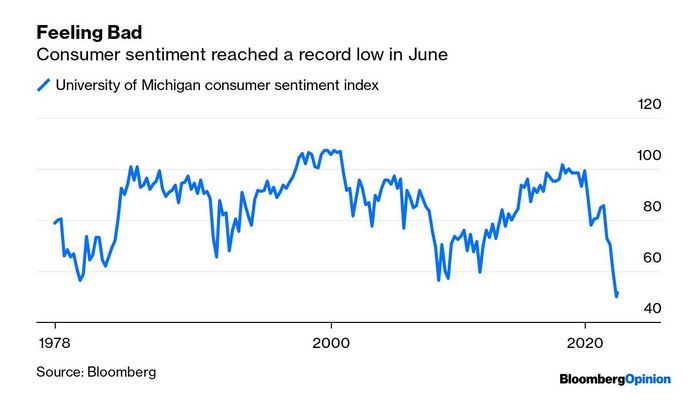 |
The man-made disaster in Sri Lanka could have been avoided, by V. Ravichandranjuly 28, 2022
The images of agitated Sri Lankans storming into their country’s presidential residence in reaction to the mishandling of farm policy by their government left me with a single thought: This could have been avoided.
Man-made disasters are the worst. They are totally unnecessary. Yet we can learn from them, and what just happened in Sri Lanka is an eye-opener and offers warnings about food production for the rest of the world—and perhaps most especially for my country of India.
When Sri Lankan President Gotabaya Rajapaksa announced last year that his island nation would reject conventional agriculture and immediately go 100-percent organic, many commentators predicted a catastrophe. I was one of them, calling this radical decision “a massive failure” that would hurt the country and its people.
Sri Lanka’s tragic error was the stuff of a wild thought experiment: What would happen if a whole nation were to abandon the tools of modern agriculture and go back to the way farming was done more than a century ago?
We no longer need to wonder about the result. We have the hard evidence of a humanitarian and economic crisis that has engulfed a nation of more than 21 million people.
…/…
See globalfarmernetwork.org
David against Goliath
| 06 - 11/08/22 | 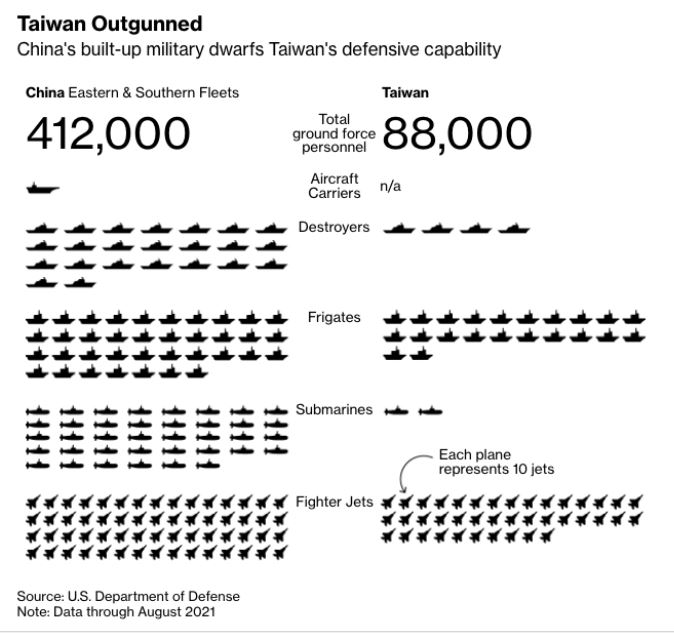 |
Thank you, Nancy Pelosi, for visiting Taiwan, by Bob Port, August 02, 2022
She stared down China's threats, she ignored President Joe Biden's characteristically bumbling efforts to discourage it, and she made the trip anyway.
MINOT, N.D. — I'm a conservative, so here are some words I never thought I'd write: Thank you, Nancy Pelosi.
As I write this, the speaker of the House has just landed in Taiwan, despite saber-rattling from China who tried to bully the Califonia Democrat, the woman who is third in line for the presidency, away from making the visit.
Though, according to the Chinese, it's we who are the bullies.
Chinese Foreign Minister Wang Yi told the Associated Press that America's supposed betrayal of China “on the Taiwan issue is bankrupting its national credibility.”
“Some American politicians are playing with fire on the issue of Taiwan,” he said. “This will definitely not have a good outcome … the exposure of America’s bullying face again shows it as the world’s biggest saboteur of peace.”
.../...
See inforum.com
Abandoning farmland for nature recovery, by Dr Alastair Leake, June 2022
I have often heard it said that intensive agriculture and biodiversity cannot be reconciled on the same piece of land.
That crop yield increases have coincided with declines in biodiversity on UK farmland cannot be disputed. However, I have the privilege of being involved with the Game & Wildlife Conservation Trust’s Allerton Project, a mixed lowland farm in East Leicestershire, where extraordinary things have been done to bust the food production versus nature conservation myth.
.../...
See scienceforsustainableagriculture.com
Very efficient (and profitable) Cancer Drugs (immunotherapy = miracle!)
| 07 - 11/08/22 | 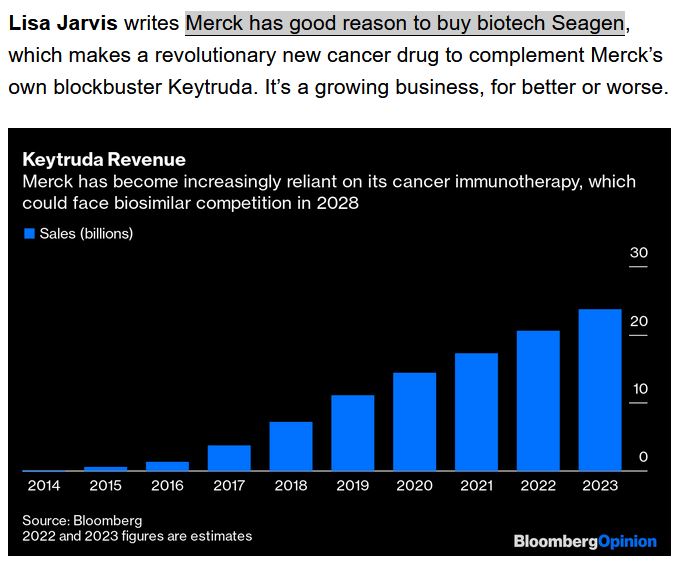 |
Majority of Clean Tech deployed in Red States
| 08 - 11/08/22 | 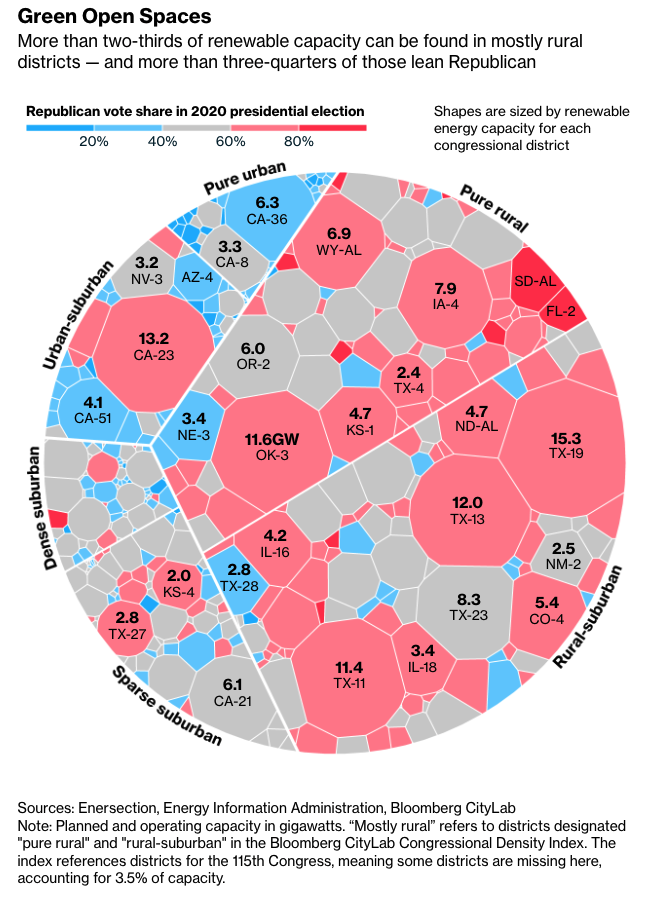 |
Education alone won’t change anti-science views, study finds, by Joan Conrow, July 22, 2022
“Conforming to the consensus is not always recommended,” the authors conclude.
“Plato and Galileo both refused to conform, and this helped them to drive society to higher levels of philosophical and scientific understanding, respectively.
However, if opposition to the consensus is driven by an illusion of understanding and if that opposition leads to actions that are dangerous to those who do not share in the illusion, then it is incumbent on society to try to change minds in favor of the scientific consensus.”
See allianceforscience.cornell.edu
On-Farm Experimentation to transform global agriculture
Restructuring farmer–researcher relationships and addressing complexity and uncertainty through joint exploration are at the heart of On-Farm Experimentation (OFE). OFE describes new approaches to agricultural research and innovation that are embedded in real-world farm management, and reflects new demands for decentralized and inclusive research that bridges sources of knowledge and fosters open innovation.
Here we propose that OFE research could help to transform agriculture globally. We highlight the role of digitalization, which motivates and enables OFE by dramatically increasing scales and complexity when investigating agricultural challenges.
See nature.com
Landscape with cattle and a woman cleaning a bucket by a stream, 1647, by Paulus Potter (1625-1654)
| 08 - 11/08/22 | 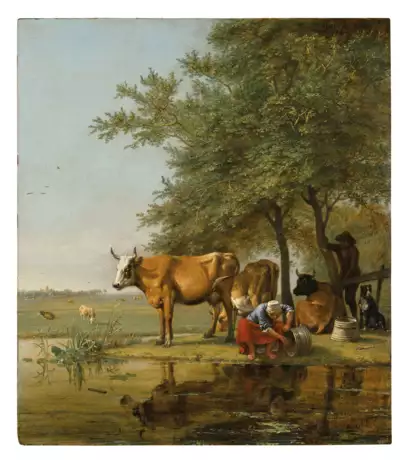 |
A diet to save the planet???
More than 2 billion people are overweight or obese, mostly in the Western world, and 811 million are not getting enough calories or nutrition, mostly in low- and middle-income nations.
At the same time, the current industrialized food system emits about one-quarter of the world’s greenhouse-gas emissions, and has other environmental impacts — which look set to rise as the world’s population increases and more people start to eat like Westerners.
With both problems in mind, nutritionists reviewed the literature to craft a basic healthy diet composed of whole foods.
Then the team set environmental limits for the diet, including carbon emissions, biodiversity loss and the use of fresh water, land, nitrogen and phosphorus.
They ended up with a diverse and mainly plant-based meal plan that was meant to be nutritious and sustainable — a ‘planetary health’ diet. However, further studies showed that, owing to costs, switching to that diet would not be possible in many regions of the world.
|
See
nature.com
11/08/22 |
 |
For more details with the full article
Food in the Anthropocene: the EAT–Lancet Commission on healthy diets from sustainable food systems, by Prof Walter Willett, MD, Prof Johan Rockström, PhD, Brent Loken, PhD, Marco Springmann, PhD, Prof Tim Lang, PhD, Sonja Vermeulen, PhD, et al.
See thelancet.com
|
Gazette
de vitisphere.com, |
The urine revolution: how recycling pee could help to save the world, by Chelsea Wald
Separating urine from the rest of sewage could mitigate some difficult environmental problems, but there are big obstacles to radically re-engineering one of the most basic aspects of life.
|
See
nature.com
11/08/22 |
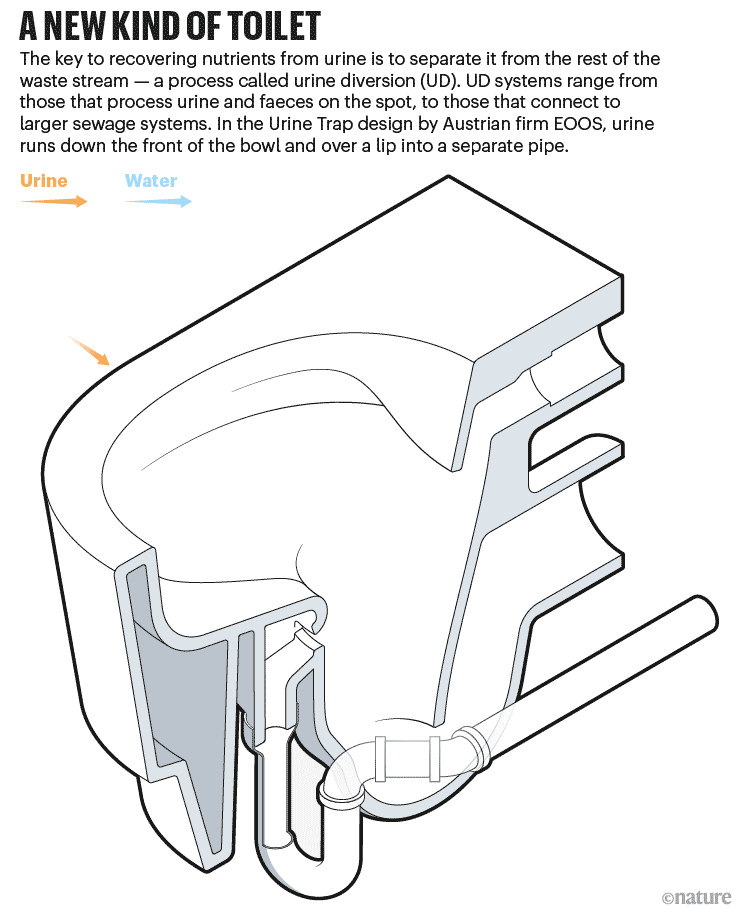 |
After Aggressions and Crimes In US Schools
| 09 - 11/08/22 |  |
Fresh, Canned, Or Frozen: Which Is Better? By Jane Caldwell, Ph.D., July 18, 2022
As part of a healthy diet, US federal guidelines recommend that adults eat 1.5 to 2 cups of fruit and 2 to 3 cups of vegetables per day. The Centers for Disease Control and Prevention note that only 1 out of 10 Americans eat enough of these foods containing essential vitamins, minerals, and fiber. There can be barriers to consumption. Fresh fruits and vegetables are pricey and have limited availability in some communities. They also have short shelf lives. Frozen and canned foods are more accessible and can be stored longer. Are these options to fresh just as nutritious?
.../...
After reviewing a wealth of scientific information on the topic, the scientists concluded that due to the time lag before a shopper prepares and eats fresh produce, the canned or frozen alternatives may be nutritionally similar due to microbial and enzymatic deterioration of the fresh food during shipping, handling, and storage. Further processed foods, whether by heat or freezing, offered much stability and shelf life with little sacrifice to nutrition. This processed produce increases the accessibility and diversity of food available to shoppers in food deserts and lowers the cost of natural sources of vitamins, minerals, and fiber.
In summary, the authors cautioned that understanding nutritional differences between fresh, canned, and frozen produce will always be complex due to harvest conditions, different cultivars, different soil fertilities, seasonal variations, plant maturities, and processing methods. For those individuals who wish to reduce sodium in their diet, they recommend fresh and frozen produce over canned or buying canned items with no salt added. In canned products using salt, they suggested salt removal by draining the liquid and rinsing the fruits or vegetables in a colander before preparation. Bon appetite!
See acsh.org
Supermarket Own Brands Up
| 10 - 11/08/22 | 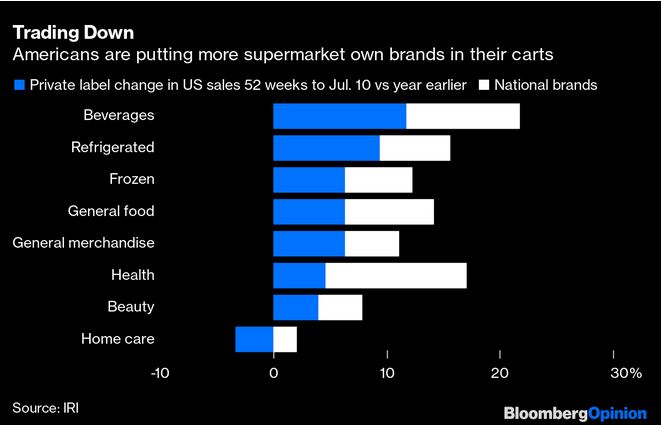 |
The Scientific Revolution in Cambridge (Physics), by Chelsea Follett
The Scientific Revolution, which began in the 16th century, started to
transform our understanding of the world. Scholars made massive leaps
across many sciences and developed a way of thinking that helped to launch
the Enlightenment.
The revolution is widely thought to have begun with the Polish astronomer
Copernicus.
However, it reached a high point in the quiet university city of Cambridge.
See
humanprogress.org
Repos d’animaux,
par Jean-Baptiste Berré (1777 – 1838), Musée du Château de Compiègne
| 09 - 11/08/22 | |
Digital India: How India's digital revolution is connecting millions
Seven years ago, only 19% of India’s 1.3 billion people had access to the internet. That figure now stands at nearly 60%.
It’s all part of Prime Minister Narendra Modi’s ambitious plan to make India a trillion-dollar digital economy.
The BBC’s Shruti Menon travelled across the country to assess the success of the programme and to see how it has transformed people's lives.
She also explored the challenges the government is facing as it continues to connect millions.
See bbc.com
La prairie, de Jean-Baptiste Berré, musée Magnin, Dijon, France
| 10 - 11/08/22 | 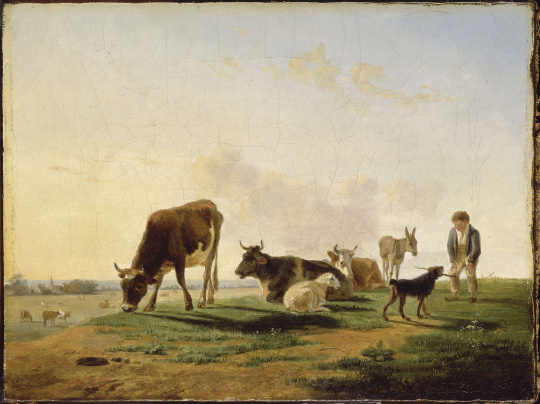 |
Smart dogs
>>>> Note: ESPN Inc. (Entertainment Sport Programming Network
Incorporated) est un réseau de télévision thématique orienté sur le sport.
Two dog owners are arguing about whose pet is smarter.
“My dog is so smart,” says the first owner, “that every morning he goes
to the store and buys me a sesame seed bagel with chive cream cheese,
stops off at Starbucks and picks me up a mocha latte, and then comes home
and turns on ESPN, all before I get out of bed.”
“I know,” says the second owner.
“How do you know?” the first demands.
“My dog told me.”
| |
The distribution of this efita newsletter is sponsored by vitisphere.com
Please, contribute to the content of your efita newsletter, and advertise your events, new publications, new products and new project in this newsletter. Without your support, it will not survive!
Contact: Guy WAKSMAN
E-mail: guy.waksman(a)laposte.net
To read this newsletter on our web site
See Efita
The archives of this newsletter
See Efita
Do not miss the Virus Jokes in English and French
About the EFITA mailing list
You can use the efita moderated list (> 15000 subscribers) to announce any event / product / web site / joke (!) related to IT in agriculture, environment, food industry and rural areas.
If you want to subscribe a friend, please fill in his form.
If you do not wish to receive our messages, please fill in the following form...

